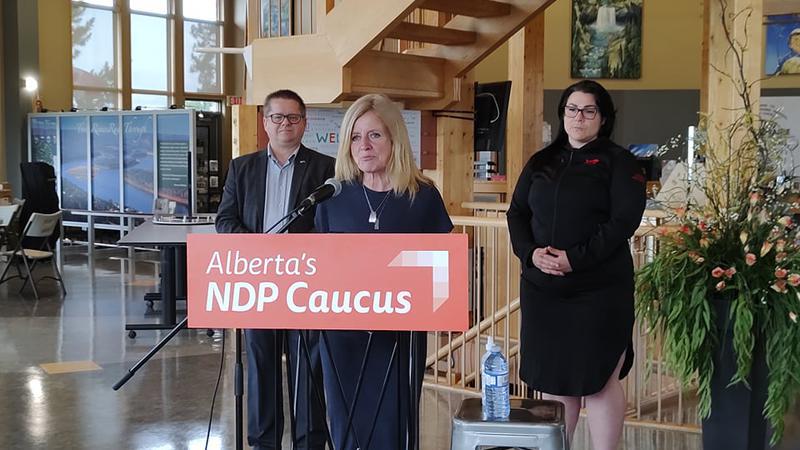
Staffing shortages causing bed closures: Notley, UNA
GRANDE PRAIRIE, AB. — Representatives of local United Nurses of Alberta branches met with Leader of the Official Opposition Rachel Notley Thursday to call on the Alberta Government to address staffing shortages that are impacting health care across the province.
Kerrie Mealey, a registered nurse at the Queen Elizabeth II hospital (QEII) and President of UNA Local 37, joined Jerry Macdonald, a registered nurse and President of UNA Local 207 and Notley at Centre 2000.
Mealey says even before the COVID-19 pandemic first hit nurses had been overworked, underpaid, and ultimately leaving the province or the profession.
She says this had led to staff shortages in health care across Alberta, including in Grande Prairie, as there are currently 80 unfilled RN positions in the city. She says this lack of staffing has led to the closure of beds.


